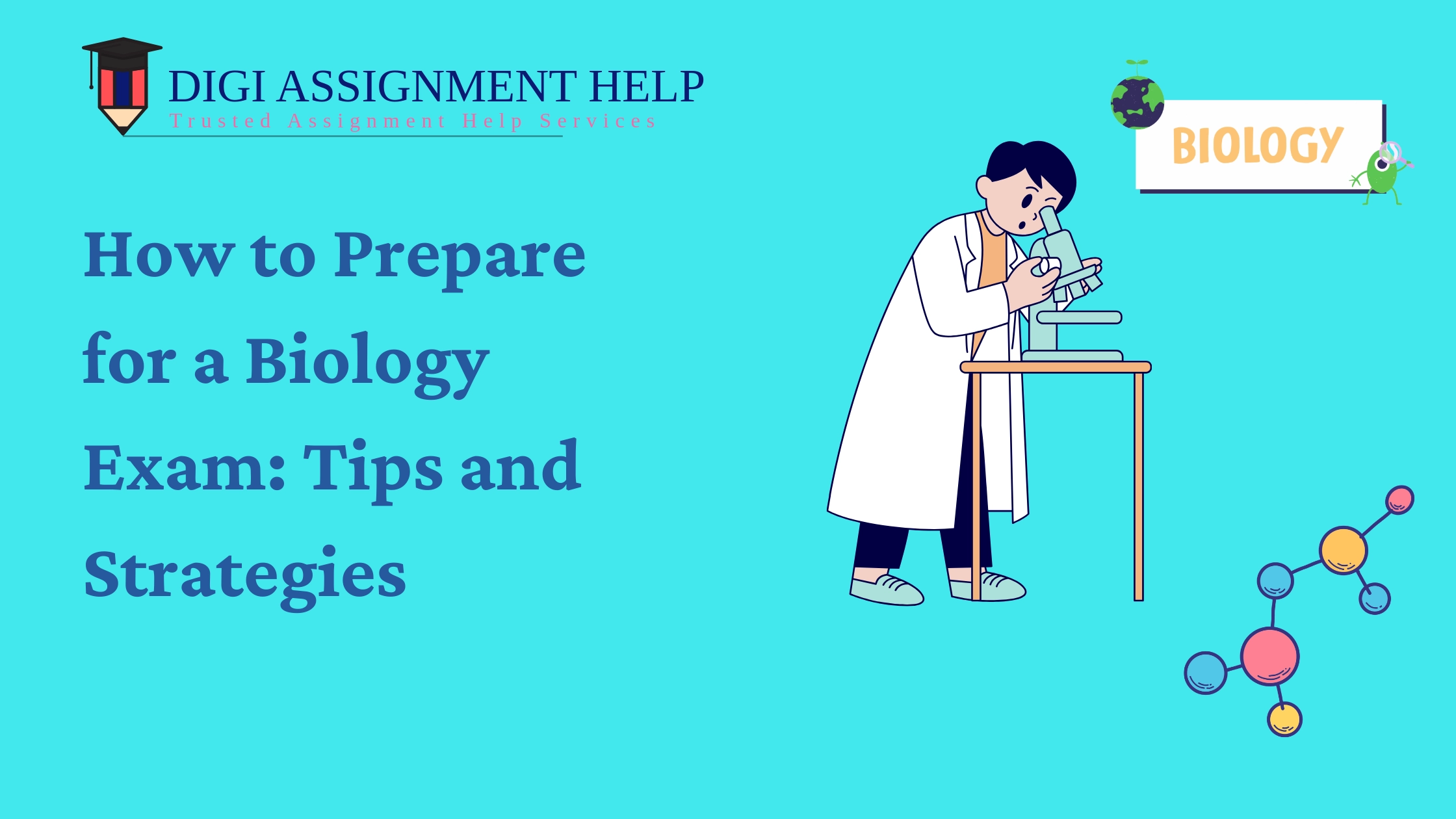How to Prepare for a Biology Exam: Tips and Strategies
 22-Jul-2024 05:15 AM
22-Jul-2024 05:15 AM

Biology is an amazing branch of science that deals with living organisms. It includes their interactions with the physical environment, and processes governing life.
Preparation for a biology exam is usually a daunting task. The large amount of information as well as complex topics make it quite complicated. Still, proper preparation is crucial in Biology especially if you are an Australian high school student, or a college student taking biology classes.
The following are the tips and strategies to assist you in preparing for your biology exam and obtaining the best grades possible.
Understand the Exam Format
First of all, you should know the type of your biology exam – will it be a closed book exam or open notes?
Understanding the nature of the exam is also helpful when planning for the study process and organization of material.
-
Types of Questions: In Biology exams, there can be multiple choice questions, short answer questions, and extended questions or essays. Also, some of the exams may incorporate a practical or laboratory element.
-
Marking Scheme: The division of section-wise distribution of the syllabus gives a clear picture of the marking scheme. A candidate preparing for the exam should practice accordingly. Also, make sure you understand the directives given by your instructor or institution.
-
Past Papers: It is equally important to review previous exams. This will help one get a feel of the likely questions asked and their level of difficulty. Practice solving these papers by making an exam environment under timed conditions.
Create a Study Schedule
Structuring your study schedule is also necessary. It ensures that a student covers all the topics without feeling that they have a lot of work to complete.
-
Start Early: Start preparing for your exams several weeks before the examination to avoid studying at the last minute. This makes it easy for you to digest the content slowly and to make sure that you retain it at the back of your mind.
-
Break Down Topics: Break down the syllabus into several subdivisions. This can be done by dividing the subject matters into specific topic reviews for each day. Focus on the challenging material and spend more time on the respective topic.
-
Consistent Study Sessions: Spend a fixed time of the day reading and concentrating on the assigned biology topic. Consistent learning will help bring about reoccurring repetition building a proper routine.
Active Learning Techniques
Just passive reading and highlighting are not always very effective for complex biology topics. You should apply active learning methods to process received information and memorize it.
-
Summarize Notes: Paraphrase what you have read in a chapter after you finish reading it. This helps retain the studied topic and facilitates the identification of issues that need further clarification.
-
Mind Maps and Diagrams: Mind maps, flow charts, and diagrams can help understand complex concepts. It makes the related knowledge easy to memorize. You can create these for topics like photosynthesis, cellular reaction, and the nitrogen cycle.
-
Flashcards: If you have to memorize big definitions, processes, or any key terms then it is good to use flashcards. Retest yourself from time to time so that you are regularly refreshing your memory.
Utilize Multiple Resources
Textbooks can be inadequate sources in giving a total view of the subject of biology. Use other resources as a supplement for your studying.
-
Online Resources: Websites like Khan Academy, Coursera, and various YouTube videos and lectures provide free knowledge on a wide range of topics of biology.
-
Study Groups: Make study groups with the help of other students with whom you have classes. Discussion with others brings new views to the topic and clarifies doubts.
-
Educational Apps: There are some apps, such as Quizlet, Anki, and BioMan Biology. These can help the learners find quizzes and flashcards for their studies.
Focus on Key Concepts
Biology is an enormous course, but there are some basic principles professed and often included in exams.
-
Cell Biology: Learn about the structures and functions of cell organelles. It also includes topics like cell divisions (mitosis and meiosis), cell metabolism, etc.
-
Genetics: Characterize the principles of inheritance: Mendelian genetics, DNA replication, transcription, translation, and mutations.
-
Evolution: Learn about evolution, natural selection, and other factors that surround the process of evolution.
-
Ecology: Read about ecosystems, biomes, populations, and relations of organisms and species in their environment.
-
Human Biology: Concentration on the structural organization coupled with the physiological functions of human beings. For instance, circulatory, respiratory, and nervous systems.
Practice with Past Papers
Practising with past exam papers is one of the most effective ways to prepare for your biology exam.
-
Timed Practice: Practicing is more effective under conditions that are as close to the exam as possible. Set a timer when doing past papers. This helps in enhancing the time management aptitudes.
-
Identify Weak Areas: You should review and go through your answers to find out the areas that you need to further study. Pay attention to these areas when you proceed with the further study sessions.
-
Familiarize with Question Types: Tackle the kind of questions that are frequently asked in examinations. Make sure to focus on what needs to be done when answering them.
Take Care of Your Health
It is important to keep physically and mentally fit during preparation for tests.
-
Balanced Diet: Ensure that you eat balanced meals as this will help to replenish the energy that you need to keep on working. This should include foods that enhance the working of the brain such as nuts, fruits, and vegetables.
-
Regular Exercise: You should exercise regularly to help lower stress and increase focus. Even a short work can free his or her mind.
-
Adequate Sleep: Make sure you take enough rest during the day, especially at night. Sleep is very essential to the body. Any form of sleep deprivation will affect normal brain functioning and memory.
Test-Taking Strategies
Using effective test-taking strategies on the day of the exam will help to achieve the best result.
-
Read Instructions Carefully: The first thing, that should be done, is carefully read the instructions given on the exam paper. This will ensure that you do not make a mistake.
-
Plan Your Time: Choose a time frame appropriate for the marks and difficulty of the section. Ensure that the final part of the answer incorporates a short time for reflection.
-
Answer Strategically: Tackle easier questions first to build confidence and secure quick marks. Go back to challenging questions later.
-
Stay Calm: In case you are stuck with a question, don’t stress over it. Breathe in and out deeply, then if you have to, proceed to the next question before you come back to that one.
Conclusion
Preparing for a biology exam requires a strategic approach. You have to use effective study techniques and focus on key concepts. By understanding the exam format, creating a structured study schedule, and utilizing multiple resources, you can enhance your preparation and boost your confidence.
Remember to take care of your health and well-being during the preparation period. With consistent effort and the right strategies, you can excel in your biology exam and achieve your academic goals in Australia.
Top Blogs
|
Researching Unique Speech Topics For Students
|
||
|
Formative Assessment Vs Summative Assessment Limits For Study Visas In Australia |
||
|
Careers In Cybersecurity: What You Need To Know
|




























